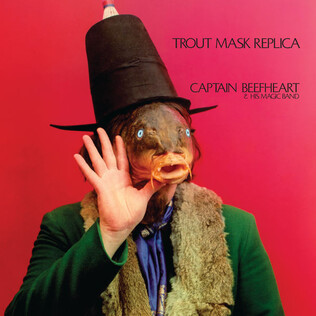It's probably premature to say this (Arcade Fire's Reflektor just released this week and I have yet to hear it), but my favorite album of 2013 so far is Trouble Will Find Me by The National.
I'm going to say it's Kelly's fault (again) that I even listened to this band in the first place. A few years ago, she bought their album Alligator on CD (note: don't have it as of yet on vinyl, will be remedied soon).
It was the kind of thing that I put on iTunes, listened to every once in a blue moon, then mostly forgot about. We saw them perform this summer at the Outside Lands Festival, and it was exciting that they played with Kronos Quartet and Bob Weir of the Grateful Dead. It was enough of an experience that, with very little to do in South Carolina, I picked up Trouble Will Find Me, with only modest expectations. As I listened to their album during car trips, I was immediately blown away by the deep melancholy power and...well, there is no other way to say this except that Bryan Devendorf is probably the greatest drummer to come around in the past 30 years, and I mean that without any hyperbole. I don't know how many times I listed to "Demons" before realizing the song was in 7:4, it was so subdued and unobtrusive.
It forced me to have another listen to Alligator. Their lyrics are quite subversive and off the wall, in only the best possible way. Lead singer Matt Berninger isn't the kind of person who tries to be a big rock star, and in interviews he is nerdy and reserved, just the kind of person who propels them into genius.
Hunting down from their back catalog, Boxer is a fan favorite and critically acclaimed. If there is any question about Bryan Devendorf's talent (or if you are just a fan of drums in general), check out "Squalor Victoria."
Considered by fans on Amazon to be one of their best, High Violet is nothing short of a masterpiece (though I'm liking Trouble Will Find Me even more), opening up with the line "It's a terrible love..." and only getting all the more intense from there ("...'cause I'm evil...").
I can listen to these albums over and over again and not get bored, finding something new in every single layer--possibly to the dismay of my loved ones.
Thursday, October 31, 2013
Tuesday, May 14, 2013
Inner Urge
There are a number of albums on the Blue Note label, but few of them mean as much to me as Inner Urge, by Joe Henderson.
It's easy to see why: it has McCoy Tyner and Elvin Jones, with Bob Cranshaw on bass. You've basically got the Coltrane Quartet rhythm section with some genius alterations for good measure. And it's Joe blowing his best.
It's funny, but back in my CD craze days I bought tons of Blue Notes, but somehow missed Inner Urge. Only when Tower Records was going out of business did I nab it up. Now it's among my "lesser known favorites."
Is it blasphemy to like Joe Henderson more than John Coltrane? I don't think so. Coltrane was his own unique thing, for sure. But Joe is everything--speed, tone, overblowing, ballads--all of it beautiful. I'll even listen to some of his lesser known stuff in awe.
I "discovered" Joe originally through his playing with the other Blue Note musicians--Horace Silver, Pete La Roca (Sims), Grant Green, Bobby Hutcherson, Andrew Hill, Eric Dolphy. It didn't take long to realize he was the secret ingredient that made all of those albums great.
It's easy to see why: it has McCoy Tyner and Elvin Jones, with Bob Cranshaw on bass. You've basically got the Coltrane Quartet rhythm section with some genius alterations for good measure. And it's Joe blowing his best.
It's funny, but back in my CD craze days I bought tons of Blue Notes, but somehow missed Inner Urge. Only when Tower Records was going out of business did I nab it up. Now it's among my "lesser known favorites."
Is it blasphemy to like Joe Henderson more than John Coltrane? I don't think so. Coltrane was his own unique thing, for sure. But Joe is everything--speed, tone, overblowing, ballads--all of it beautiful. I'll even listen to some of his lesser known stuff in awe.
I "discovered" Joe originally through his playing with the other Blue Note musicians--Horace Silver, Pete La Roca (Sims), Grant Green, Bobby Hutcherson, Andrew Hill, Eric Dolphy. It didn't take long to realize he was the secret ingredient that made all of those albums great.
Thursday, May 9, 2013
Shine On You Crazy Diamond
Last night I got to listen to Pink Floyd's Wish You Were Here, one of my birthday presents from Rachel.
I don't always abide what "remastering" does, but on 180 gram vinyl, it's hard to find any fault--it sounds absolutely amazing. The sound effects, bass, keyboard, drums--and David Gilmour's guitar work is at his absolute best. This was Pink Floyd's "jazziest" album, probably their most musically rooted in tradition--from Roy Harper's outlandish vocal on "Have a Cigar" to the soulful saxophone solos of "Shine On You Crazy Diamond." You can read about the legend of the making here.
As for what the album means to me personally, mostly I remember listening to it in high school. It's an introspective album that commands introspection from its listener. It isn't gloomy or maudlin--there's no "Goodbye Cruel World" or "Comfortably Numb" here--instead, it is pure blues, reveling in the sounds and making each note last. I never thought of it as my "favorite" Floyd album, but there is no doubting its place in Floyd's best. It's the kind of thing you can hear thousands of times and still hear something new each time.
There is also something about the artwork and packaging--"Hipgnosis," aka the recently departed Storm Thorgerson, created something very special. The 180g vinyl reissue includes a poster, interior art, and original sleeve (as well as a protective sleeve), giving something visual that only enhances the album, without taking anything away.
Wednesday, February 13, 2013
Neon Meate Dream of a Octafish
Sooner or later I was bound to get it. The 180 gram vinyl has the original credits (DRUMBO, aka John French, missing from the credits) and with no "insert" with the lyrics and drawings by THE MASCARA SNAKE.
How to describe the music? Kelly wouldn't even speak to me when she entered the house until I turned it off. You either love it or hate it--or don't know how to classify it and leave it alone entirely.
The legends of the album are as surreal as the album itself. Captain Beefheart (Don Van Vliet) took his magic band to a house and kept them there rehearsing for eight months, where he used brainwashing techniques to break each of the members down. Then, at the end of it all, he took his entire band to Frank Zappa's recording studio and laid down all 20 tracks in a single session.
Rolling Stone has put this as #60 in the list of Greatest Albums of All Time, and it is a favorite of the likes of Tom Waits, PJ Harvey, and Matt Groening.
I remember first hearing it through Amy's roommate Bob out on Cape Cod when we first started dating. Not only did it fascinate me and make me laugh, but it also fascinated Bob that I started to sing along with such compositions as "Neon Meate Dream of a Octafish" and "Ella Guru."
A squid eating dough in a polyethylene bag is fast and bulbous. Got me?
Tuesday, January 29, 2013
Best Album You've Never Heard of?
Don't let the name of the band ("Love"), the silly-sounding title ("Forever Changes") or the psychedelic album cover fool you. Released in 1967, this is quite possibly one of the darkest and most beautiful albums I've ever heard. It's a seemingly obscure album by a seemingly obscure group--at least so it was with me until a few weeks ago.
I bought the album originally digitally through free MP3 credits. I forget how it came up or was recommended. After that, it haunted me until I had to track it down on vinyl, too.
I'm a sucker when it comes to "happy" songs that are in minor or blues keys and "sad" songs that are in major keys. The Kinks were the first group I know of to do this--have me happily bouncing along to a song until I listened to the dark, twisted, depressing lyrics. But nothing does it so well as this album, that's for sure. For example, take the opening lyrics to "Red Telephone": sitting on a hill-si-ide (sung so happily), watching all the people (still happy) die (flatted, out of tune). The effect is chilling, and unforgettable. Even the title--"Forever Changes"--takes on a darker meaning once you know the story that spawned it. One person was breaking up with another person, and the dialogue went along the lines of "you promised you would love me forever!" "Oh yeah? Well, forever changes."
There are several other lyrical gimmicks, such as leaving the last line out of a line, then using the anticipated word to begin the next line (in "Maybe the People Would Be the Times or Between Clark and Hilldale"), but most of the brilliance is in the music itself, rife with strings, woodwinds, and other instruments. I'm a particular fan of session drummer Michael Stuart-Ware for his amazing work, keeping up with apparently three guitarists.
There's more than enough material written about how essential and ground-breaking this album has been. For my part, I can only say that it lives up to the hype--and then some.
I bought the album originally digitally through free MP3 credits. I forget how it came up or was recommended. After that, it haunted me until I had to track it down on vinyl, too.
I'm a sucker when it comes to "happy" songs that are in minor or blues keys and "sad" songs that are in major keys. The Kinks were the first group I know of to do this--have me happily bouncing along to a song until I listened to the dark, twisted, depressing lyrics. But nothing does it so well as this album, that's for sure. For example, take the opening lyrics to "Red Telephone": sitting on a hill-si-ide (sung so happily), watching all the people (still happy) die (flatted, out of tune). The effect is chilling, and unforgettable. Even the title--"Forever Changes"--takes on a darker meaning once you know the story that spawned it. One person was breaking up with another person, and the dialogue went along the lines of "you promised you would love me forever!" "Oh yeah? Well, forever changes."
There are several other lyrical gimmicks, such as leaving the last line out of a line, then using the anticipated word to begin the next line (in "Maybe the People Would Be the Times or Between Clark and Hilldale"), but most of the brilliance is in the music itself, rife with strings, woodwinds, and other instruments. I'm a particular fan of session drummer Michael Stuart-Ware for his amazing work, keeping up with apparently three guitarists.
There's more than enough material written about how essential and ground-breaking this album has been. For my part, I can only say that it lives up to the hype--and then some.
Mr. Bungle: sound surprise
I remember this album (1991) very well from my college years:
The vinyl record by Plain Recordings (2009) holds a few pleasant surprises. Being picky about vinyl sound now, I'm used to fiddling with the settings on my stereo, but this was something very different. First, I realized that the subwoofer was being used and that the "main sound" wasn't coming through the front speaker very loudly. After a few setting changes, I realized that it sounded amazing in 5.1 surround. I'm still kind of weirded out by this: that all six speakers are being used and directed, just like the sound for a movie. And yet: it's still a phonograph, still analog. The outputs are still the standard red + white cables. Whoever mixed this knew exactly what they were doing. I'm guessing (I'm no sound expert here) that the different 5.1 speakers are designed to amplify sounds at certain frequencies, and so it was when it must have been converted to analog from the original, probably digital, master.
But then again, this is no typical album to begin with. The tracks segue into weird sound bytes, bits of movies, DAT recordings, pornography, bodily functions, and other madness. There is also the matter of the music itself. Once described as "part death metal, part jazz, meets ska weirdness," the album does not easily fit into any category.
For all that, it is incredibly well put together, with a meticulous attention to detail--sudden changes that would drive almost any musician mad. If I had a list of the "best weird albums of all time," this would certainly make the top 5. The music certainly isn't for everyone. Love him or hate him, Mike Patton (also of Faith No More, Fantômas, Peeping Tom, Tomahawk, Moonchild, and a gazillion other projects) is at his best when he is both singing and making weird sound effects, under a structured regime. I'm also a lover of horns put to good use. If you are into songs about sex with food, auto-erotic asphyxiation, and the masochism of sound, look no further.
The vinyl record by Plain Recordings (2009) holds a few pleasant surprises. Being picky about vinyl sound now, I'm used to fiddling with the settings on my stereo, but this was something very different. First, I realized that the subwoofer was being used and that the "main sound" wasn't coming through the front speaker very loudly. After a few setting changes, I realized that it sounded amazing in 5.1 surround. I'm still kind of weirded out by this: that all six speakers are being used and directed, just like the sound for a movie. And yet: it's still a phonograph, still analog. The outputs are still the standard red + white cables. Whoever mixed this knew exactly what they were doing. I'm guessing (I'm no sound expert here) that the different 5.1 speakers are designed to amplify sounds at certain frequencies, and so it was when it must have been converted to analog from the original, probably digital, master.
But then again, this is no typical album to begin with. The tracks segue into weird sound bytes, bits of movies, DAT recordings, pornography, bodily functions, and other madness. There is also the matter of the music itself. Once described as "part death metal, part jazz, meets ska weirdness," the album does not easily fit into any category.
For all that, it is incredibly well put together, with a meticulous attention to detail--sudden changes that would drive almost any musician mad. If I had a list of the "best weird albums of all time," this would certainly make the top 5. The music certainly isn't for everyone. Love him or hate him, Mike Patton (also of Faith No More, Fantômas, Peeping Tom, Tomahawk, Moonchild, and a gazillion other projects) is at his best when he is both singing and making weird sound effects, under a structured regime. I'm also a lover of horns put to good use. If you are into songs about sex with food, auto-erotic asphyxiation, and the masochism of sound, look no further.
Sunday, January 6, 2013
John Lennon/Plastic Ono Band
Nothing can be more clear about the difference between vinyl and CD than this gem from 1970.
I never really liked the Beatles growing up, thinking of most of their songs as vapid pop--having only been exposed to their hit songs like "She Loves You" and "A Hard Day's Night." Eventually my father made me listen to Abbey Road, the eponymous white album, and (his favorite) Rubber Soul. It didn't take long for the stranger songs to grow on me, weird kid that I was. Furthermore, John Lennon seemed like the most inaccessible of the Beatles. There was Paul, who had the amazing voice and was always writing romantic nostalgia songs. There was George, who transformed the guitar into ethereal beauty. And there was Ringo, who was...well, Ringo--made fun of a lot, but always far more important than everyone led on. John was different somehow. I could always tell when he was playing piano because of the way he hits the dark chords as if he were playing everything bright and sunny--like something bouncing happily on your chest while it devours your heart. As for his guitar, I never really paid much attention given the superstar George was.
I remember first listening to this album on CD (with its bonus tracks) and thinking, a decent album but not something I'd listen to all the time. Certainly it didn't seem as important an album as Imagine. Some deep dark stuff, the John Lennon who probably needs prozac and should get on in his life. Still, it is considered by Rolling Stone to be #23 in the greatest albums of all time or whatever, not that I take much stock in that sort of thing.
When I found John Lennon / Plastic Ono Band on vinyl at a reasonable price, I did not hesitate to pick it up. Still relatively uncommon by vinyl standards, it has not gone through tons of reissues or changes in the sound.
Vinyl really makes a difference. On "Mother," John's screams always sounded a bit affected and over-the-top to me in digital. In the vinyl world, the quiet of the background instruments gives his yowling a quality that can make your spine tingle. This kind of desperate quality carries over throughout all the other songs, most notably "Love," a song which makes me truly appreciate Phil Spector. The fade-in of the piano is a gimmick that works, makes you almost think the song is over, then comes back in just at the right time--and it is Phil on piano, surprisingly, not John. Any doubt I had about John-the-guitarist is eliminated in "Well Well Well," a song which was also made me instantly recognize and appreciate Ringo as a stand-up musician. And the way the album ends, on "My Mummy's Dead," brings the entire experience on such a down note and ties it back together to the beginning. Screw bonus tracks, this is really the way the music begs to be heard.
Finally, there is the jacket art. There are no liner notes, not even a list of songs, only a picture of John and Yoko under a tree on the front and John as a child on the back. There is nothing more that needs to be said, the music is what is speaking for itself. Pure John Lennon, in a way that he has never sounded better, before or after.
Subscribe to:
Comments (Atom)
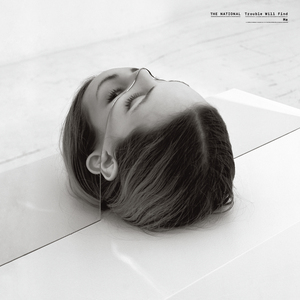

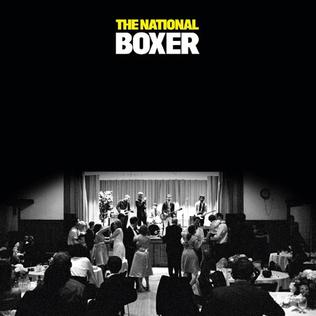


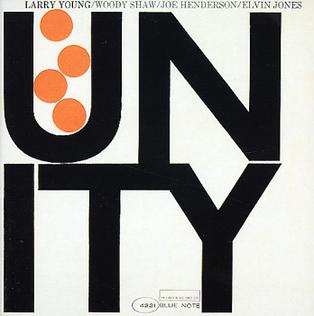
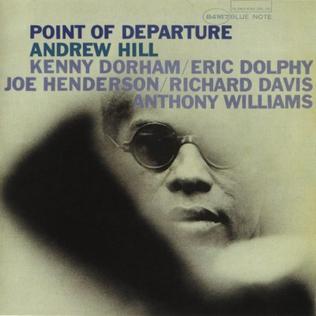
.jpg)


